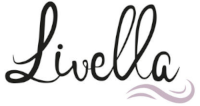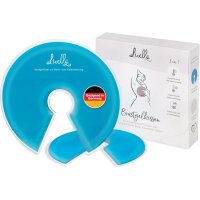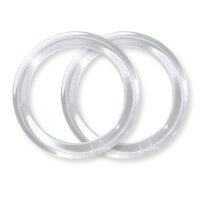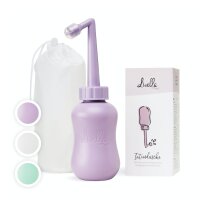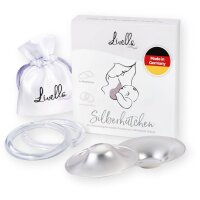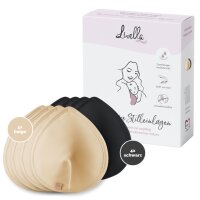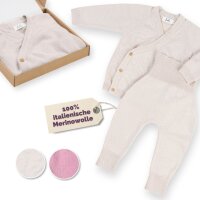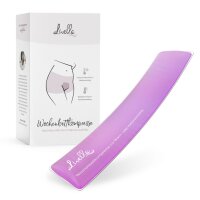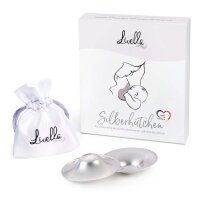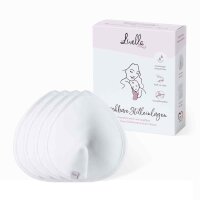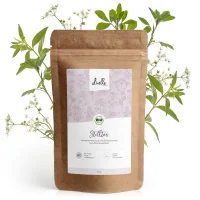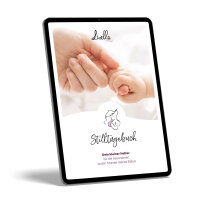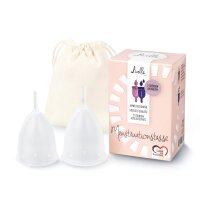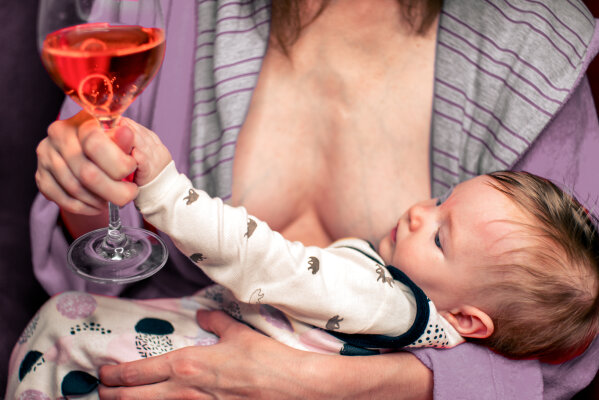There are only very few topics that are as hotly debated among new mums as alcohol and breastfeeding. While alcohol is generally considered an absolute no-go during pregnancy, opinions differ on whether breastfeeding mums should drink or not.
Regular and excessive drinking is, without a doubt, an urgent reason to stop breastfeeding. But what about an occasional glass of wine or champagne? Is a small drink here and there really that bad?
Can you drink alcohol when breastfeeding? What happens if a baby drinks breast milk with alcohol? And how much alcohol actually gets into the breast milk? Read on as we answer all your questions about breastfeeding and alcohol.
Table of contents
Breastfeeding and alcohol: what are the effects on mother and baby?
Alcohol and breastfeeding: how long after drinking can I breastfeed?
Alcohol and breastfeeding: tips for safe drinking
Alcohol and breastfeeding: what are the alternatives?
Conclusion: can you drink alcohol when breastfeeding?
Breastfeeding and alcohol: what are the effects on mother and baby?
Drinking alcohol is a strict no-go during pregnancy because any alcohol you consume directly gets into the body of your unborn child where it can cause severe harm. Although this risk no longer exists during breastfeeding, the alcohol passes through to your breast milk and is then consumed by your baby.
Excessive alcohol consumption during breastfeeding can lead to several health issues in your child, including delayed motor development. Acute symptoms of excessive maternal alcohol consumption in breastfed infants can include sleep disorders (shortened sleep phases and less deep sleep), profuse sweating, increased crying, less effective sucking while at the breast, increased weight gain and general signs of intoxication.
Daily alcohol consumption is therefore an urgent reason to stop breastfeeding immediately. However, recent scientific research suggests that an occasional drink (e. g. one or two glasses of champagne per week) is unlikely to harm your baby.
Drinking alcohol can also have an impact on nursing itself. For instance, frequent alcohol consumption while breastfeeding can:
- Change the taste of your breast milk, which can lead to your baby refusing your breast
- Inhibit your let-down reflex because it negatively affects the release of oxytocin in your body
- Increase the risk of blocked milk ducts because your breasts are not emptied properly during breastfeeding
- Make you more irritable, which can put a strain on the relationship with your baby
- Reduce your ability to concentrate, which makes it more difficult to get a good breastfeeding latch and therefore puts you at a high risk of getting sore nipples from breastfeeding
What’s more, experts often stress that alcohol impairs a mother's natural reflexes, which means that there is a high risk for your baby’s safety when you co-sleep. The alcohol will make you less receptive to your baby’s signals, which is why you should never sleep with your baby after drinking.

Alcohol and breastfeeding: how long after drinking can I breastfeed?
Breastfeeding mums metabolise alcohol in the same way as women who are not breastfeeding. In other words, the alcohol metabolism is neither delayed nor accelerated because a woman is breastfeeding. However, breastfeeding women are at an advantage when it comes to how much alcohol they absorb. Their alcohol absorption rate is up to 25% lower compared to women who are not breastfeeding. This means that the amount of alcohol that passes through to your breast milk is also lower.
On average, it takes 30 to 60 minutes for the alcohol to pass through to your breast milk. Studies show that the alcohol level in breast milk is at its highest about one hour after consumption. If you consume alcohol with a meal, the moment where the alcohol level in your milk reaches its highest point can be delayed by another 60 minutes.
“How long do I have to wait to breastfeed after drinking alcohol?” is a common question among breastfeeding mums. In other words, how long does breast milk hold alcohol? There is no definite answer to this question because it largely depends on the mother’s bodyweight and the amount of alcohol she has consumed. As a rule of thumb, it takes between two and two and a half hours to metabolise a standard drink that contains around 12g of alcohol.
Unfortunately, it isn’t possible to speed up the metabolism of alcohol in your body. There are, however, different ways to decrease the amount of alcohol that gets into your breast milk. Eating a proper meal before drinking, switching between alcoholic and non-alcoholic drinks and drinking slowly all help reduce the alcohol level in your milk.
Alcohol and breastfeeding: tips for safe drinking
The alcohol level in your breast milk almost equals your blood alcohol level. Let’s illustrate this with an example. If you consume a glass of wine and your blood alcohol level rises to 0.38 per mille, the alcohol level in your breast milk is roughly the same.
The official recommendations regarding alcohol and breastfeeding differ between countries. While national health institutions in some countries recommend that mothers should completely avoid drinking alcohol when breastfeeding, the consensus in other countries is that an occasional drink is not likely to harm the baby.
Recent scientific studies on the subject of breastfeeding and alcohol have come to the conclusion that drinking one glass of alcohol (for example 100 ml of wine or sparkling wine) once or twice a week when breastfeeding is unlikely to cause harm.
Still, to be completely safe, you should observe the following rules when drinking alcohol and breastfeeding:
- Wait two to two and a half hours after drinking before breastfeeding again
- Stick to smaller drinks
- Prefer low-alcohol drinks
Also, try breastfeeding your baby shortly before drinking alcohol because then you have more time until the next feeding is due. That’s also one of the reasons why it’s advisable to refrain from drinking during the first month after birth.
In the early days of breastfeeding, your baby needs to breastfeed more often because he or she can only ingest small amounts of milk with each feed. Plus, it takes time to establish a regular breastfeeding pattern, which makes it hard to schedule breaks between feeds to give your body time to metabolise the alcohol.
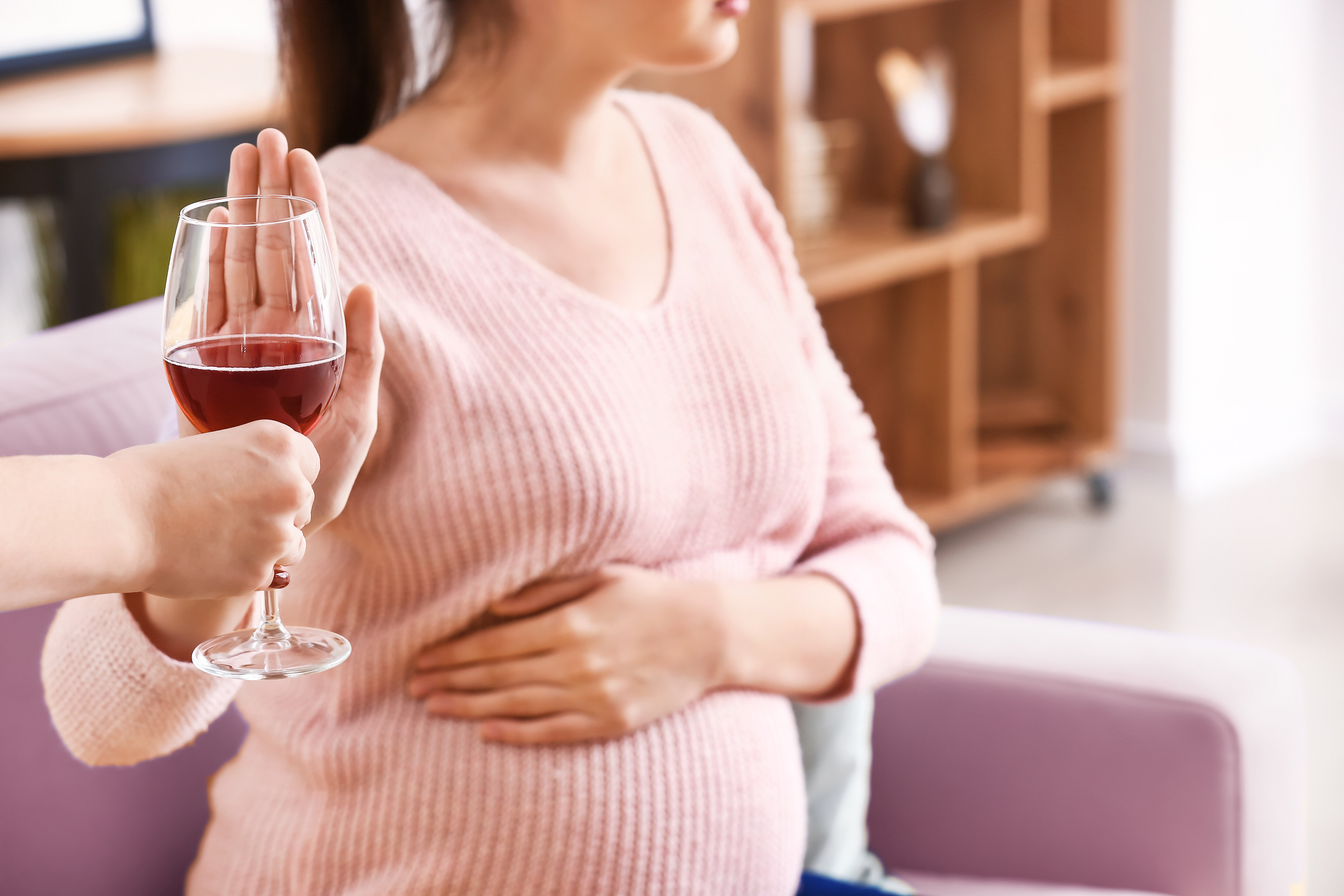
Alcohol and breastfeeding: what are the alternatives?
While drinking alcohol during pregnancy is a definite no-go, the rules for alcohol consumption during breastfeeding are not as strict. Sure, breastfeeding mums should still follow the recommendations we have outlined in the previous section, but there is no absolute ban on drinking while breastfeeding.
Even on occasions where you cannot abstain from alcohol, you can take measures to ensure your little one is well looked after. For instance, if you know that you will have more than the recommended standard drink, you can prepare for the occasion by pumping and freezing milk in advance. Your partner or another relative can then feed the stored milk to your baby until it is safe for you to breastfeed again.
Of course, you can also stick to non-alcoholic drinks when being invited to a party or when going out with friends. Champagne, beer, wine and cocktails are also available in non-alcoholic versions that taste just as good.
Conclusion: can you drink alcohol when breastfeeding?
Alcohol may not exactly be part of a healthy breastfeeding diet, but there is no need for you to completely abstain from alcohol just because you are breastfeeding. Moderate alcohol consumption is unlikely to harm your breastfed baby, especially not if you stick to the following rules:
- Don’t drink more than one standard unit of alcohol once or twice a week.
- If possible, breastfeed your baby immediately before drinking alcohol.
- To be on the safe side, wait between two and two and a half hours after drinking alcohol before breastfeeding again.
- Try to avoid drinking alcohol in the first month after giving birth.
- Having food and a complementary non-alcoholic beverage with your drink reduces your alcohol intake.
- In cases of regular and excessive alcohol consumption, there is no other option but to stop breastfeeding.
Verwendete Quellen
- Stillen und Muttermilchernährung (publisso.de)
- Alkohol und Stillen: eine Zusammenfassung des Kenntnisstandes (stillen-institut.com)
- Alcohol Use During Breastfeeding | Breastfeeding Medicine (liebertpub.com)
- In der Stillzeit auf Alkohol verzichten? | Apotheken Umschau (apotheken-umschau.de)
- Stillen und Alkohol - familienplanung.de
- Alkohol in der Stillzeit - Eine Risikobewertung unter Berücksichtigung der Stillförderung - BfR-Wissenschaft 07/2012 (bund.de)
- Alkohol und Stillen Kurzform gel. (uni-tuebingen.de)
- 2112_5854_1.PDF (lkee.de)
